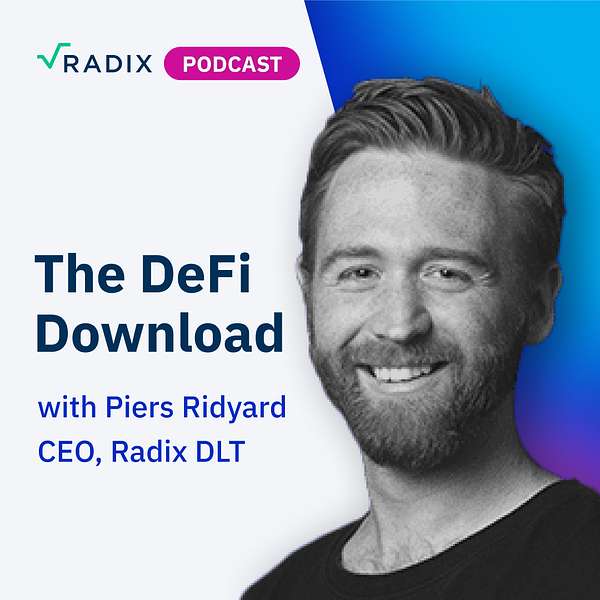
The DeFi Download
The DeFi Download
MLABS - Building dApps on Cardano, Polkadot, Solana, and Radix
In this episode of the DeFi Download, Piers Ridyard is joined by Ben Hart, CTO, and Amir, blossoming Scrypto developer at MLabs. Ben and Amir share their experience with different programming languages and platforms, such as Haskell, Plutus, Rust, and Scrypto.
Summary
MLabs is a Haskell, Rust, and Blockchain AI consultancy working with various industries, such as fintech and blockchain. MLabs is also the developer of the Plutonomicon library, a major contributor to it, and one of the main contributors to the Plutarch eDSL version of the Plutus smart contract language.
Key takeaways
- Ben came across Radix at Consensus 2023 and was impressed with the thoughtfulness and organization of the Radix team and builders. He found it easy to jump into Scrypto because of his previous experience with Rust.
- Amir found Scrypto to be easier to learn and use than Plutus because it abstracts away some of the lower-level details and has well-named concepts and design patterns. Amir was able to quickly understand and experiment with Scrypto by reading the documentation and the community examples that are available.
- Radix’s guardrails and intent-based transactions make programming and building applications easier and safer, unlike Ethereum’s state-based transactions. It is difficult to explain Radix’s advantages to someone who has not faced Ethereum’s challenges.
Chapters
[01:01] The story of MLabs' founding
[03:33] What are Haskell and Plutus, and how did MLabs get their team up to speed with these languages?
[08:04] Advantages and challenges of using Plutus for building applications
[10:18] Haskell's reputation as a secure language and the difficulty in finding and training new Haskell developers—has MLabs encountered this?
[11:32] The philosophical and principles-based approach of Haskell and Rust advocates who are willing to change careers to write production code in these languages
[12:40] How and why did MLabs expand to Rust, a language that is ideologically similar to Haskell?
[13:42] How did the MLabs team learn about Radix and Scrypto, and how has their experience been so far?
[16:03] When and how did MLabs begin developing on Radix with clients from other communities, such as Cardano, and bringing that functionality to the Radix network?
[18:38] From Haskell and Plutus to Scrypto: Amir’s journey and insights
[20:03] Amir's favourite aspect of Scrypto and what he has built up to this point
[22:06] The need for critical tooling in an ecosystem: how DAO tooling enables governance features for DeFi applications
[23:20] Amir’s insights on building governance functionality in Scrypto and the benefits of the platform
[26:30] What are Amir’s timelines for testing and deploying the governance tooling, and when can people start using it?
[27:42] How does Ben, as CTO, use Scrypto to plan and implement MLabs' application architecture?
[31:35] The inverse relationship between speed of development and security
[33:09] What new Scrypto developers or those considering a move to the Radix ecosystem need to know
[35:42] How open-source repositories can aid in learning Scrypto, despite being outdated
[37:35] Radix’s goal to have the best crypto documentation and match Web2 standards
Further resources
- Website: mlabs.city
- Twitter: @MLabs10